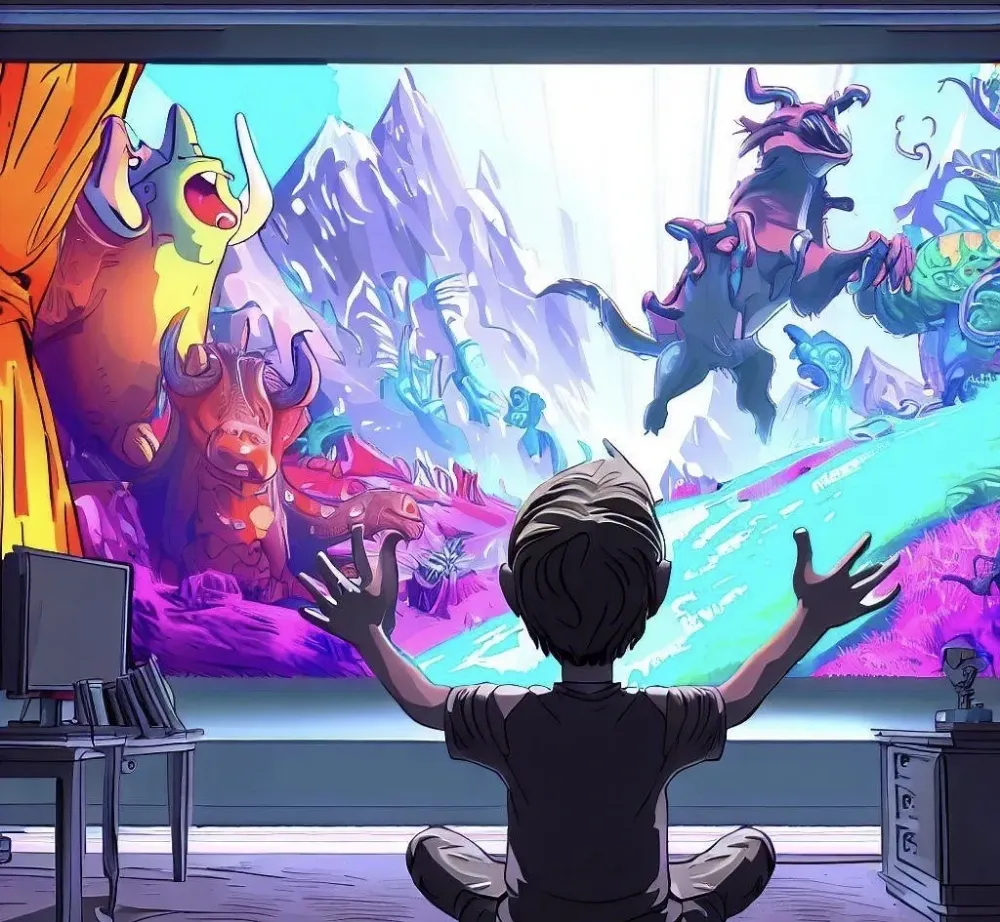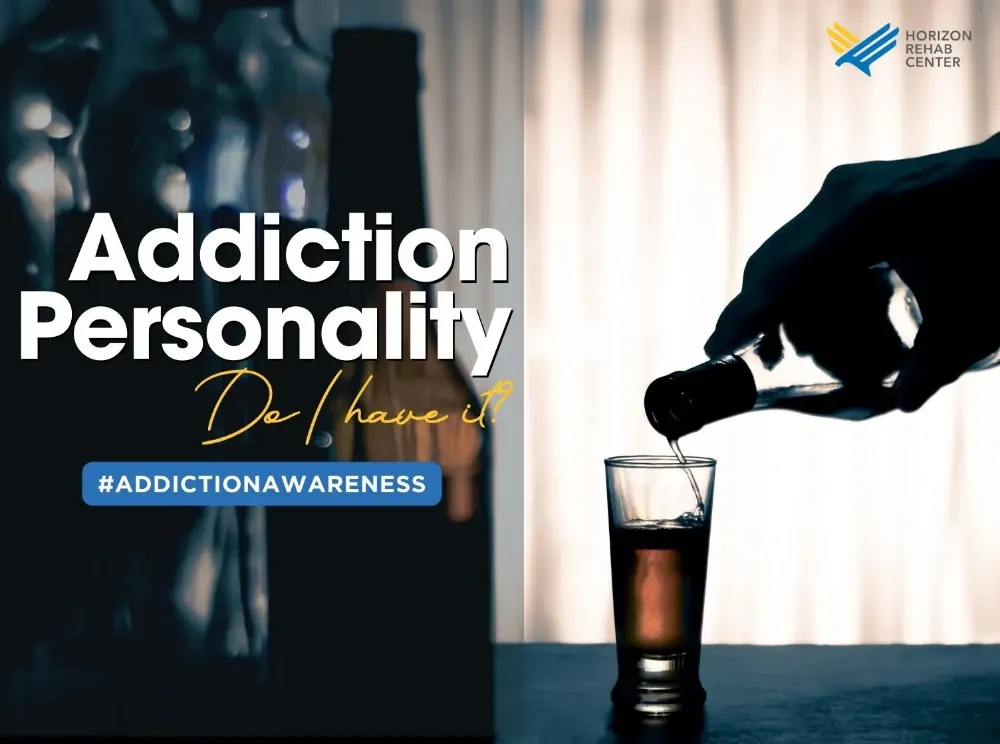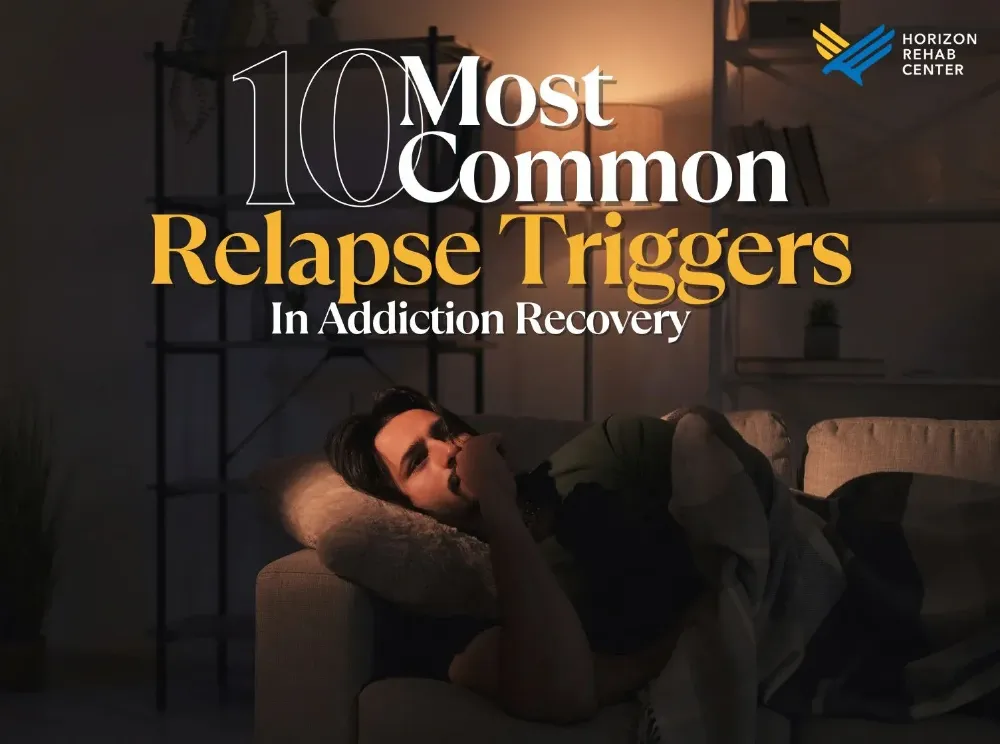
Fact or Fiction: Unveiling the Truth Behind Video Game Addiction
Some of you reading this article may be a part of Generation X, or Y. If so, then you may fondly recall the thrill of staying up late, deeply engrossed in your favorite video games. Those nights spent maneuvering through virtual realms, often into the early hours, were undeniably a part of our formative years.
The sheer joy of gaming wove itself into the fabric of our childhood memories, contributing significantly to our understanding of technology, problem-solving, and even fostering friendships. However, as we revel in these recollections, we must also acknowledge a growing concern that has come to the fore with the increasing popularity of video games—video game addiction.

In recent years, video games have transformed from a beloved pastime into a global phenomenon, captivating the attention of millions. Yet, as the gaming universe expands, so too does the concern about potential addiction. Notably, while the American Psychiatric Association has not officially recognized it as a disorder, the World Health Organization included “gaming disorder” in its International Classification of Diseases in 2018.
Studies are unveiling that excessive gaming can lead to harmful consequences, like decreased academic performance, social isolation, and physical health issues. This has ignited a debate: is video game addiction a distinct issue or merely a manifestation of underlying mental health concerns, such as depression or anxiety?
Despite the lack of universal recognition, a significant number of experts assert that video game addiction is a tangible and severe problem. They propose various treatment options, such as therapy, support groups, and structured limits on screen time.
Of course, it’s crucial to remember that not everyone who enjoys video games will develop an addiction. Yet, those who do may exhibit symptoms akin to other addictions, such as withdrawal when unable to play as well as continued use despite evident negative effects.
While much research remains to be conducted on the topic of video game addiction, one thing is clear: unchecked gaming can have detrimental impacts on one’s life. Just as with any form of addiction or mental health issue, seeking professional help is often a critical step towards overcoming the problem and enhancing overall well-being.
As we progress through this article, please know that we in no way wish to demonize video games—they have positively shaped many of our experiences. However, we believe in the importance of raising awareness about potential risks and promoting balanced, healthy gaming habits. Because while video games may provide an immersive escape, we must not lose sight of the reality that exists beyond the screen.
Introduction to Video Game Addiction
Video Game Addiction: A Growing Concern
The rise of video games has brought about a new form of addiction that is becoming increasingly prevalent worldwide. Video game addiction, also known as gaming addiction, is characterized by an uncontrollable urge to play video games, leading to negative consequences in various aspects of life. This phenomenon has become a growing concern among parents, educators, and healthcare professionals.
Compulsive Need to Play Video Games
While this may seem like an obvious thing to look out for, there is a distinct difference between who is passionate about video games, but can take it or leave it if need be…and someone who NEEDS to play video games. Addicted gamers often prioritize playing games over other important activities such as work, school, or socializing with friends and family. They may spend hours on end playing video games without taking breaks for meals or sleep. This compulsive need to play can lead to physical and mental health problems such as obesity, sleep disorders, anxiety, and depression.
Negative Consequences of Pathological Video Gameplay
Pathological video gameplay can have negative consequences on various areas of life. For example:
- Academic performance: Addicted gamers may neglect their studies and perform poorly in school.
- Work productivity: Gaming addicts may miss work or underperform due to excessive gaming.
- Social relationships: Playing video games excessively can cause social isolation and strain relationships with friends and family.
- Physical health: Prolonged sitting while gaming can lead to obesity and other health problems.
- Mental health: Gaming addiction is linked to increased rates of anxiety and depression.
Prevalence of Video Game Addiction
The prevalence of video game addiction is increasing due to the widespread availability and accessibility of video games. With the advent of mobile devices, people can now access games anytime from anywhere. Moreover, online multiplayer games have made it easier for people to connect with others who share their passion for gaming.
According to a study conducted by the National Institute on Media and the Family (NIMF), approximately 8.5% of American youth aged 8-18 years are addicted to video games. The study also found that boys are more likely than girls to become addicted to video games.
The Entertainment Software Association (ESA) reported that the average age of a gamer is 35 years old, and 65% of American adults play video games. With such a large number of people playing video games, it is not surprising that some individuals develop an addiction.
Understanding Video Game Addiction: Signs and Symptoms
Symptoms of Video Game Addiction: Signs and Warning Signs
As mentioned previously, Gaming disorder is a recognized condition by the World Health Organization (WHO) and is characterized by impaired control over gaming behavior. Internet gaming disorder is a type of gaming disorder that involves excessive use of the internet to play games, leading to significant impairment in daily life. Symptoms of video game addiction may include preoccupation with gaming, withdrawal symptoms when not playing, and continued gaming despite negative consequences. Warning signs of video game addiction may include neglecting responsibilities, social isolation, and using gaming as a coping mechanism for stress or anxiety.
Addiction Symptoms
Video game addiction symptoms can vary from person to person. However, some common symptoms are often observed in individuals who are addicted to video games. Firstly, an individual may feel preoccupied with playing games all the time. They might think about their favorite games even when they are not playing them. Secondly, they might experience withdrawal symptoms such as irritability, restlessness, or mood swings when they are unable to play their favorite games for an extended period of time.
Thirdly, individuals who suffer from video game addiction might continue playing even though they experience negative consequences such as poor academic performance or strained relationships with family members and friends. Fourthly, they might lose interest in other activities that were once important to them because they prefer spending most of their time playing games.
Gaming Disorder
Gaming disorder is a mental health condition that affects people who spend excessive amounts of time playing video games. According to WHO’s International Classification of Diseases (ICD-11), Gaming Disorder is defined as “a pattern of persistent or recurrent gaming behavior (‘digital gaming’ or ‘video-gaming’) which may be online (i.e., over the internet) or offline.” This behavior leads to significant impairment in personal life including work/school performance, socializing with others, and physical health issues like obesity due to lack of physical activity.
Internet Gaming Disorder
Internet Gaming Disorder is a type of gaming disorder that involves excessive use of the internet to play games. This condition can lead to significant impairment in daily life, including poor academic or work performance, strained relationships with family members and friends, and physical health issues like obesity due to lack of physical activity.
Withdrawal Symptoms
Withdrawal symptoms are common in individuals who suffer from video game addiction. These symptoms may include irritability, restlessness, mood swings, anxiety, or depression when they are unable to play their favorite games for an extended period of time. Withdrawal symptoms can be severe enough that they might interfere with an individual’s ability to function normally in their personal and professional lives.
Warning Signs
There are several warning signs that indicate an individual might be addicted to video games. Firstly, they might neglect responsibilities such as schoolwork or household chores because they prefer playing games instead. Secondly, they might isolate themselves from family members and friends because they prefer spending most of their time playing games alone.
Thirdly, using gaming as a coping mechanism for stress or anxiety is another warning sign of video game addiction. Individuals who feel stressed or anxious might turn to gaming as a way to escape reality temporarily. Lastly, if someone continues playing even though it causes negative consequences like poor academic performance or strained relationships with family members and friends, this could also be considered a warning sign.
Risk Factors for Developing Video Game Addiction

Social Isolation and Loneliness: A Risk Factor for Video Game Addiction
Video games have become an increasingly popular form of entertainment, with people of all ages spending hours immersed in virtual worlds. While most individuals can enjoy video games without developing an addiction, some are at a higher risk than others. One such risk factor is social isolation and loneliness.
Research has shown that individuals who feel socially isolated or lonely may turn to video games as a way to escape from their feelings of loneliness. They may find solace in the virtual world where they can interact with other players and feel a sense of belonging. However, this can lead to excessive gaming and ultimately, addiction.
Individuals with Pre-existing Mental Health Conditions: A Higher Risk for Video Game Addiction
Another risk factor for developing video game addiction is pre-existing mental health conditions. Individuals who struggle with depression, anxiety, or other mental health issues may use video games as a coping mechanism. Gaming provides a temporary distraction from their problems and can provide a sense of control over their environment.
However, this coping mechanism can quickly turn into an addiction if left unchecked. It’s important for individuals struggling with mental health issues to seek professional help instead of relying solely on gaming as a way to cope.
Availability and Accessibility: Contributing Factors to Video Game Addiction
The availability and accessibility of video games also contribute to the development of addiction. With the rise of mobile gaming, it’s easier than ever before to access video games at any time and from anywhere.
The widespread availability of online multiplayer games means that individuals can play with others around the world at any time of day or night. This constant availability makes it difficult for some individuals to stop playing even when they know they should.
Personality Traits: Impulsivity and Sensation-seeking
Certain personality traits also increase the risk of developing video game addiction. Individuals who are impulsive or sensation-seeking may be more likely to engage in risky behaviors, including excessive gaming.
These individuals may enjoy the excitement and stimulation that video games provide, leading them to play for longer periods of time than they intended. Over time, this can lead to addiction.
Lack of Parental Supervision: A Risk Factor for Video Game Addiction in Children and Adolescents
Children and adolescents are particularly vulnerable to developing video game addiction. One risk factor is a lack of parental supervision and involvement.
Parents who do not monitor their child’s gaming habits or set limits on screen time may inadvertently contribute to the development of addiction. It’s important for parents to be aware of the potential risks associated with excessive gaming and take steps to prevent their children from becoming addicted.
Using Video Games as a Coping Mechanism: A Potential Pathway to Addiction
Finally, using video games as a coping mechanism for stress or emotional difficulties can also lead to addiction. Individuals who feel overwhelmed by their emotions may turn to gaming as a way to escape from their problems.
While this may provide temporary relief, it can ultimately lead to addiction if left unchecked. It’s important for individuals struggling with emotional difficulties to seek professional help instead of relying solely on gaming as a way to cope.
The Evolution of Video Games of the Years
From Pong to Fortnite, video games have come a long way since their inception in the 1970s. With advancements in technology and the internet, video games have become more immersive and realistic, providing gamers with an experience that can last for hours. However, as video gaming continues to evolve and become more integrated into daily life, it is important for individuals to be aware of the potential risks associated with excessive gameplay.
The Early Days of Video Gaming
In the early days of video gaming, graphics were simple and often consisted of just a few pixels on a screen. Games like Pong and Space Invaders were popular during this time period and provided gamers with hours of entertainment. However, these games lacked the depth and complexity that modern-day games offer.
As technology advanced, so did video games. In the 1980s, home consoles like the Nintendo Entertainment System (NES) became popular among gamers. These consoles allowed for more complex game mechanics and improved graphics. Games like Super Mario Bros., The Legend of Zelda, and Donkey Kong became instant classics during this era.
The Rise of Computer Gaming
With the introduction of personal computers in the 1990s came a new era of gaming. Games like Doom and Quake revolutionized first-person shooters while strategy games like Age of Empires became incredibly popular among gamers.
Computer gaming also introduced online multiplayer capabilities which allowed gamers to connect with others from around the world. This led to the creation of massively multiplayer online role-playing games (MMORPGs) like World of Warcraft which still has millions of active players today.
Modern-Day Gaming

Today’s video games are more immersive than ever before thanks to advancements in technology such as virtual reality (VR) and augmented reality (AR). Games like Fortnite have taken over social media platforms by storm due to their accessibility and unique gameplay mechanics.
However, as video gaming continues to evolve, so do the potential risks associated with excessive gameplay. Studies have shown that pathological video gameplay can lead to negative effects on mental health, relationships, and overall quality of life.
It is important for individuals to be aware of the time spent playing video games and to make sure they are not neglecting other important aspects of their life such as work, school, or social relationships. While video gaming can provide hours of entertainment and enjoyment, it is crucial to maintain a healthy balance between gaming and other activities.
Physical and Mental Health Effects of Video Game Addiction
Physical health problems associated with video game addiction can be severe. Carpal tunnel syndrome, obesity, and poor posture are just a few examples of the negative consequences that can result from excessive gaming behaviors. Carpal tunnel syndrome is a condition that affects the hands and wrists, causing pain, numbness, and tingling sensations. This condition is often caused by repetitive motions such as those used when playing video games for extended periods of time.
Obesity is another physical health problem that can develop as a result of video game addiction. When individuals spend hours sitting in front of a screen playing games, they are not engaging in physical activity or burning calories. Over time, this lack of exercise can lead to weight gain and other related health problems.
Poor posture is also common among individuals who play video games for long periods of time. Sitting in one position for an extended period can cause back pain, neck pain, and other musculoskeletal disorders.
Mental health problems associated with video game addiction are equally concerning. Depression, anxiety, and other mental disorders have been linked to excessive gaming behaviors. These conditions can be debilitating and impact an individual’s ability to function in daily life.
Sleep deprivation is another common consequence of video game addiction. When individuals stay up late playing games or wake up early to continue their gaming sessions, they are not getting enough sleep. This lack of restful sleep can lead to impaired cognitive function and an increased risk of accidents.
The American Psychiatric Association has recognized video game addiction as a public health concern due to its negative effects on both physical and mental health. Seeking help from a mental health professional is recommended for those experiencing negative consequences from their gaming behaviors.
Diagnosis and Tests for Video Game Addiction
Diagnostic Criteria for Video Game Addiction
The diagnostic criteria for video game addiction are not yet officially recognized by the American Psychiatric Association. However, the World Health Organization has included “gaming disorder” in its International Classification of Diseases (ICD-11). This is a significant step forward in recognizing video game addiction as a legitimate mental health issue.
To be diagnosed with gaming disorder, an individual must exhibit a pattern of behavior characterized by impaired control over gaming, increasing priority given to gaming over other activities, and continuation or escalation of gaming despite negative consequences. These negative consequences can include physical, psychological, social, educational, occupational or other important areas of functioning. The behavior pattern must be severe enough to cause significant impairment in these areas of life.
Diagnosis of Gaming Disorder
Diagnosis of gaming disorder requires a comprehensive assessment by a qualified mental health professional. The assessment typically includes an interview with the individual and their family members or close friends. The interviewer will ask questions about the individual’s gaming habits and how they affect their daily life.
Some common questions that may be asked during the assessment include:
- How much time do you spend playing video games each day?
- Do you feel irritable or restless when you cannot play video games?
- Have you tried to cut back on your video game use but been unsuccessful?
- Has your video game use caused problems at home, work, or school?
- Have you lost interest in other activities because of your video game use?
The interviewer may also use standardized questionnaires to help diagnose gaming disorders. One such questionnaire is the Internet Gaming Disorder Scale (IGDS), which measures symptoms related to excessive internet and gaming use.
Treatment for Gaming Disorder
Just as with any addiction, treatment for gaming disorder is multi-faceted and tailored to the individual’s needs. One commonly employed approach is cognitive-behavioral therapy (CBT). This therapeutic method aids individuals in identifying negative thoughts and behaviors tied to their gaming addiction, facilitating their replacement with healthier alternatives. CBT also imparts essential coping strategies to manage triggers that might provoke a relapse.
At Horizon Rehab Center in Bangkok, Thailand, we offer a comprehensive residential treatment program that caters to international clientele grappling with gaming and screen addiction. As an abstinence-based program, we emphasize 12-step facilitation as part of our treatment approach. This method promotes personal accountability, self-acceptance, and a supportive community, which are crucial components in the recovery journey.
Given our strategic location within a hospital setting, we have the unique advantage of access to a wide range of healthcare professionals, including psychiatrists. While we don’t routinely use pharmacotherapy in our treatment, it can be recommended by our treating psychiatrist when deemed necessary.
In our tranquil and therapeutic environment, individuals receive the care and support they need to overcome gaming addiction. Beyond therapy and 12-step facilitation, we also offer various wellness activities and holistic therapies that complement traditional treatment methods. The goal is to promote overall well-being and equip individuals with the necessary skills to maintain a balanced lifestyle post-treatment.
It’s important to remember that while gaming disorder is a serious condition, recovery is entirely possible. With the right treatment and support, individuals can regain control of their lives and enjoy gaming in a healthy, balanced way.
Where to Get Help for Gaming Addiction
If you or someone you know is wrestling with video game addiction, rest assured that help is available. Acknowledging the problem and seeking assistance is the crucial first step in the journey toward recovery.
A potential starting point is consulting with a mental health professional specializing in addiction. Such experts can provide an accurate assessment and suggest appropriate treatment options, which could encompass therapy or joining support groups.
Online communities and forums are other valuable resources where individuals can connect with others who are navigating similar challenges. These virtual support networks can offer peer encouragement and advice on effective coping strategies.
Moreover, various rehabilitation centers, including Horizon Rehab Center offer programs specifically tailored to address gaming addiction. Our internationally recognized, comprehensive residential treatment program integrates both traditional and alternative therapeutic approaches. These include individual and group therapy, cognitive-behavioral therapy, and creative outlets such as mindfulness, art therapy as well as a comprehensive physical fitness program.
Remember, recovery from addiction is a process, and progress may sometimes seem slow. But with the right support and resources, overcoming video game addiction and leading a fulfilling life is entirely within your reach.
Don’t hesitate to reach out for help – taking the first step towards recovery may be challenging, but it’s also the most empowering.






